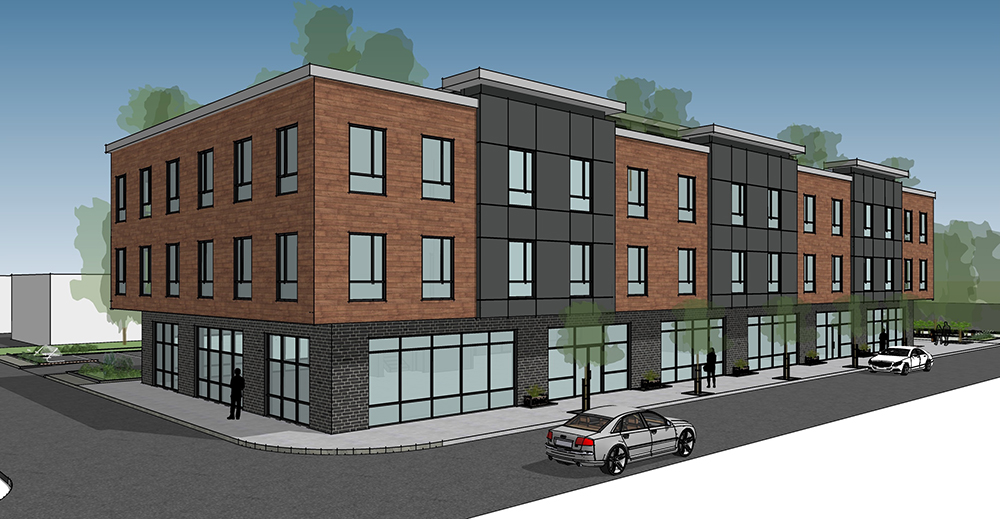Cela Development secures $6.34 million in financing from Rockland Trust for construction of a mixed-use property

Weymouth, MA Cela Development Inc. has secured $6.34 million in financing from Rockland Trust for the construction of a mixed-use property on Bridge St. The property spans three floors totaling 31,000 s/f with the ground level designated for retail space. The second and third floors will contain a mix of 20 one- and two-bedroom apartment units.
Sean McKenna, vice president and commercial loan officer at Rockland Trust, said, “Areas south of Boston, particularly towns like Weymouth with access to public transit and commuting options into the city, have a growing demand for housing opportunities. I appreciate the relationship we have built with Anton and the team at Cela Development as this project will help to supply needed housing in a constrained market.”
Cela said, “This project has been well received by the city of Weymouth. This is our second construction loan with Rockland Trust, we enjoy the commitment to growing the relationship and service we receive from all the departments we work with at the bank.”
Cela Development has undertaken various construction projects in South Boston and Quincy ranging from apartment complexes to single-family homes to restaurant renovations.
The project is located within walking distance of George Lane Beach, Lovell’s, and King’s Cove Park.
Preservation of Affordable Housing secures $23.5 million in financing from Rockland Trust and Citizens Bank

Conn. hospitality market: A technical appraisal perspective on market dynamics and valuation challenges (2019-2025)










